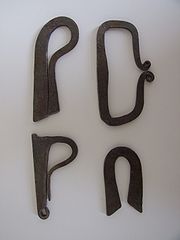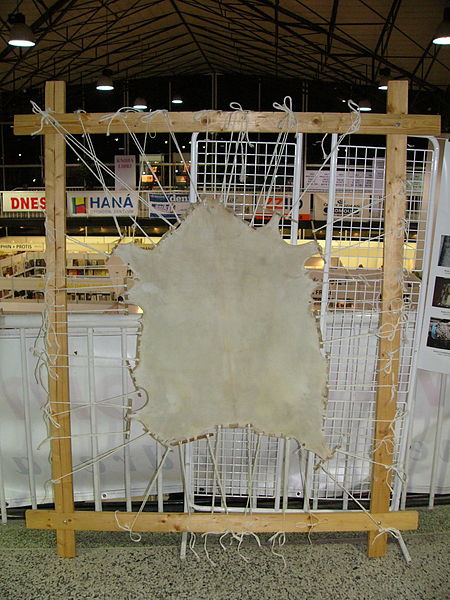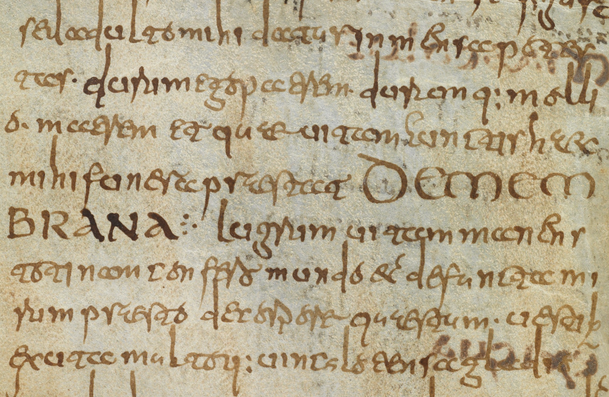Aldhelm Riddle 21: Lima
ALEXANDRAREIDER
Date: Sat 12 Mar 2022Corpore sulcato nec non ferrugine glauca
Sum formata fricans rimis informe metallum.
Auri materias massasque polire sueta
Piano superficiem constans asperrima rerum;
Garrio voce carens rauco cum murmure stridens.
With a grooved body and an iron shine
I am made for grinding unformed metal with my furrows.
Accustomed to polishing golden materials and masses,
I even out the surface of things while remaining very rough;
Lacking in voice, I harshly utter a hoarse whisper.
Notes:
This edition is based on Rudolf Ehwald, ed. Aldhelmi Opera Omnia. Monumenta Germaniae Historica, Auctores Antiquissimi, 15. Berlin: Weidmann, 1919, pages 59-150. Available online here.
Tags: riddles latin Aldhelm




Commentary for Bern Riddle 21: De apibus
NEVILLEMOGFORD
Date: Fri 29 Jan 2021Matching Riddle: Bern Riddle 21: De apibus
We have already had riddles about beeswax and honey. Now we turn to the bees themselves. RELEASE THE BEES!
via GIPHY
via GIPHY
This riddle begins with a variation on the virgin birth trope that also appears in Riddles 8 and 19. In this case, the speaker is a “spouse” (coniux) who is masculus non… sed neque femina (“neither man nor woman”). Moreover, the father is ignotus (“unknown”). These lines play with two ideas about bees that sometimes crop up in late antique and medieval texts: their apparent sexlessness and their spontaneous generation. For example, Ambrose of Milan, writing in the 4th century, says:
Communis omnibus generatio, integritas quoque corporis virginalis omnibus communis et partus, quoniam neque inter se ullo concubitu miscentur, nec libidine resolvuntur, nec partus quatiuntur doloribus, et subito maximum filliorum examen emittunt, e foliis et herbis ore suo prolem legentes.
Procreation is common to all, as is childbirth and the chastity of the virgin body, since neither do they mix between themselves in any sexual intercourse, nor is their libido unleashed, nor are their childbirths affected with pains, and they suddenly send forth a huge swarm of offspring, gathering the child from leaves and blades of grass.
–Ambrose, Hexameron, Book V, 21, 68 (PL14:234B).
As a result of ideas like this, bees became associated in the visual arts and literature with ideas of virginity, chastity, and the Virgin Mary. The spontaneous generation of bees is repeated in line 4 of the riddle—whereas the previous two riddles described the hive as a “womb,” the bee has none.
Line 4 also has an interesting crux: ab ore cretos… sumpsi. If you did not know the context, you might be tempted to read it as “I consumed… by mouth.” Thus, it would be referring to a gruesome act of cannibalistic fratricide! However, the correct translation is probably “I gather… by mouth.” This alludes to another medieval bee “fact” mentioned in Ambrose’s passage that I quoted earlier—the idea that bees gather their larvae from plants. When I think about it, sumpsi (“I gathered”) might even have the sense of “adopted” which would fit nicely with the unknown father of line 2.
The final line describes how the larvae are surrounded with food in the honeycomb, which involves a nice little pun on dulci amore (“with sweet love”). Oh, how nice it is to have a riddle with an unambiguously sweet ending!
References and Suggested Reading:
Ambrose, Hexameron. In Jacques Paul Migne (ed.), Sancti Ambrosii Opera Omnia, Vol. 1.1. Patrologia Latina 14. Paris: Migne, 1845. Columns 123-475. Available at Google Books.
Tags: latin Bern Riddles
Related Posts:
Bern Riddle 8: De ovo
Bern Riddle 19: De cera/De pice
Bern Riddle 20: De melle